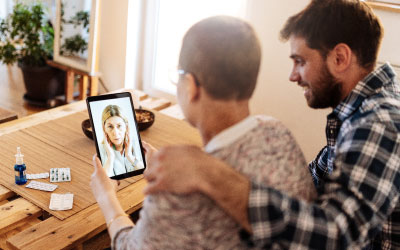Are Clinical Trials Safe?
It is natural to wonder whether clinical trials are safe—especially when you are already dealing with a serious medical condition. Required safeguards protect participants during every research study.
What is informed consent in research?
One safeguard is informed consent. Potential participants learn important information about the clinical trial during the informed consent process before deciding to join the study. This process of providing updated information continues throughout the trial.
A document is provided with information, such as:
- The purpose of the clinical trial
- The length of time the study will last
- Details about any required procedures or testing
- A list of contact information for the research team with instructions on who to contact for various reasons
- Potential risks and benefits of the trial
- An agreement that the clinical trial participant has the right to withdraw (leave) from the study at any time for any reason
Signing an additional document is required for children participating in clinical trials. Anyone younger than 18 must get consent from their legal guardians or parents.
Children older than seven years often must give their own consent before they join a study. Research team members may explain the study to children using pictures and words that they can easily understand.
Who protects participants during clinical trials?
Many institutions, individuals, and/or government organizations monitor and review clinical trials to make sure participants are safe. These may include the following:
- The clinical investigator: This individual, also called the principal investigator, is responsible for the entire clinical trial. If severe side effects occur during the trial, the clinical investigator must inform the institution sponsoring the trial immediately.
- A Data and Safety Monitoring Board (DSMB): Clinical trials funded by the National Institutes of Health (NIH) often have a DSMB consisting of subject matter experts and experienced researchers. This board reviews clinical trial data, checks for safety issues, and can stop the study if harmful side effects occur.
- An Institutional Review Board (IRB): An IRB consists of doctors, statisticians, and community members who ensure that clinical trials follow a code of ethics protecting participant rights.
- The National Cancer Institute (NCI): If the NCI pays for any part of a clinical trial for leukemia treatments, the NCI must approve any study plans before the trial begins. The NCI audits the clinical trial site to ensure that it’s taking proper safety precautions.
- The Office for Human Research Protections (OHRP): The OHRP is a part of the U.S. Department of Health and Human Services (HHS), which oversees any HHS-supported research. OHRP guides IRB review and analysis of study protocols.
- The United States Food and Drug Administration (FDA): This government organization oversees testing new medications or medical devices through clinical trials. The FDA thoroughly reviews applications at different stages of the research process to ensure participant safety. If any aspect of the clinical trial is considered unsafe, the FDA can shut down a clinical trial until these concerns are addressed.
Whenever you join a clinical trial, you must remember that you always have complete control over your treatment. You can withdraw from the study if you feel uncomfortable, your symptoms worsen, you don’t see improvement, or for any other reason.



